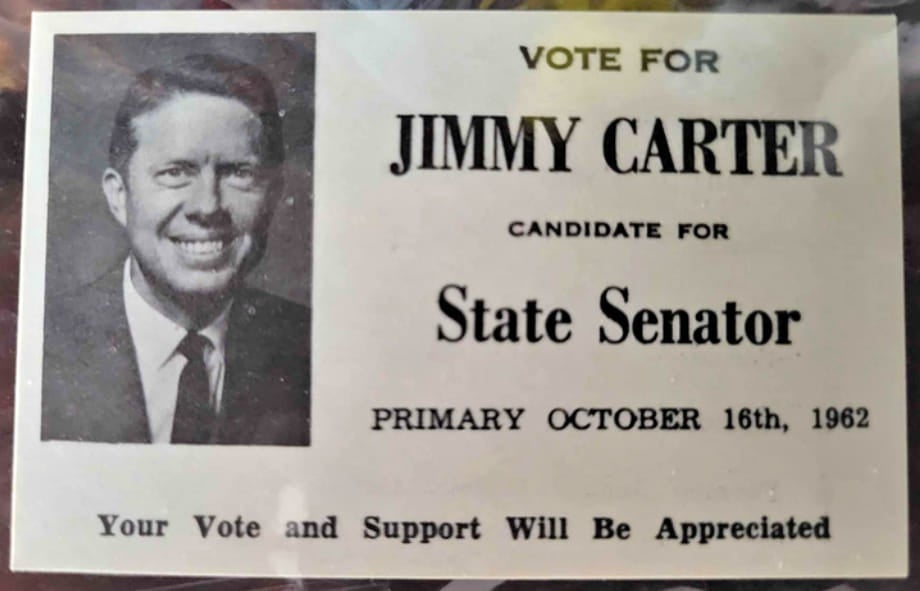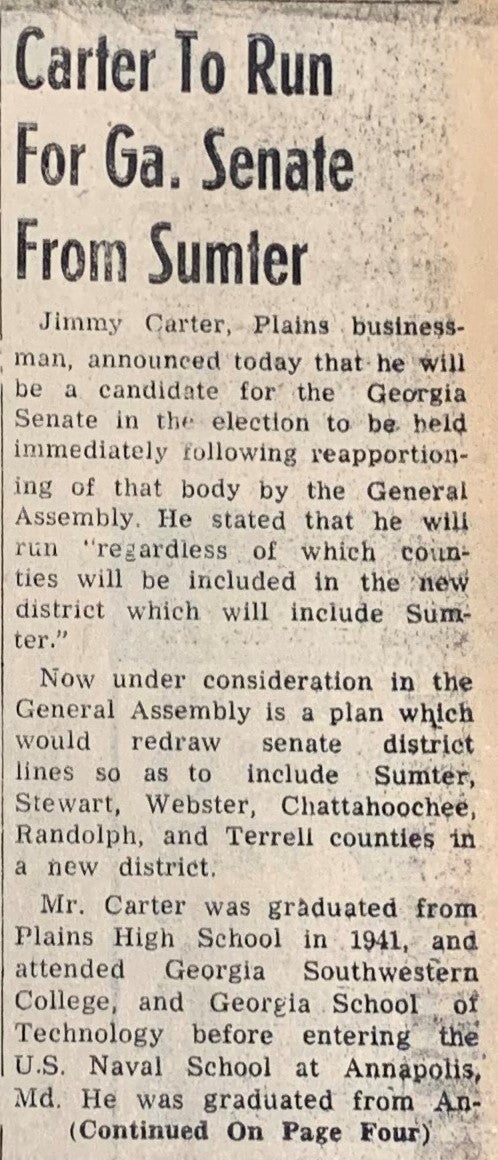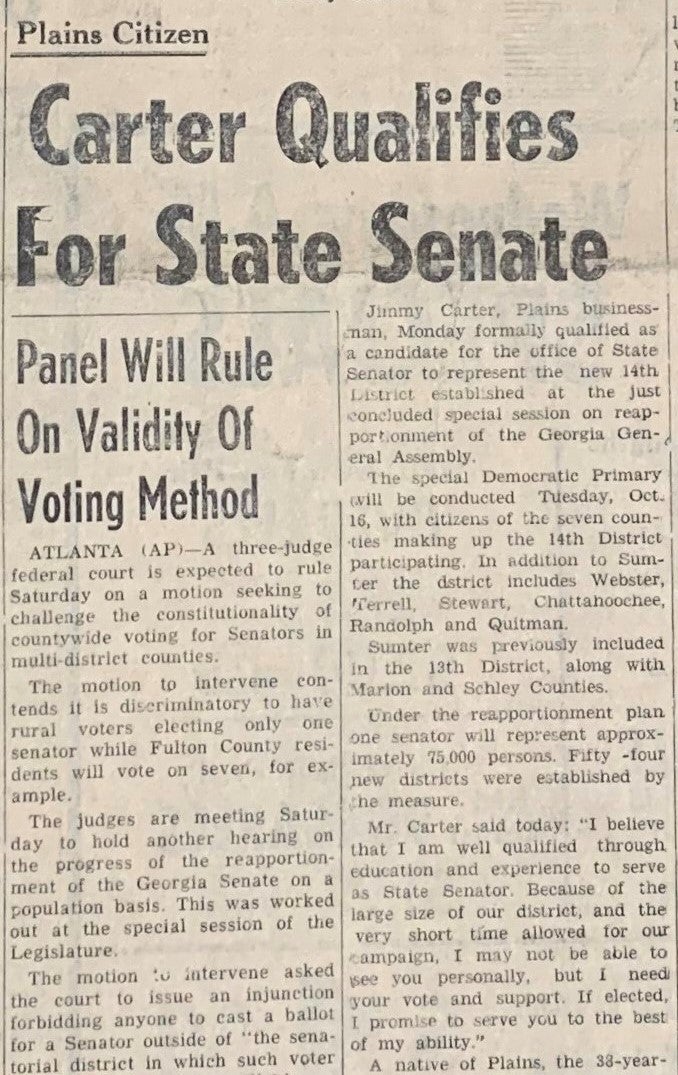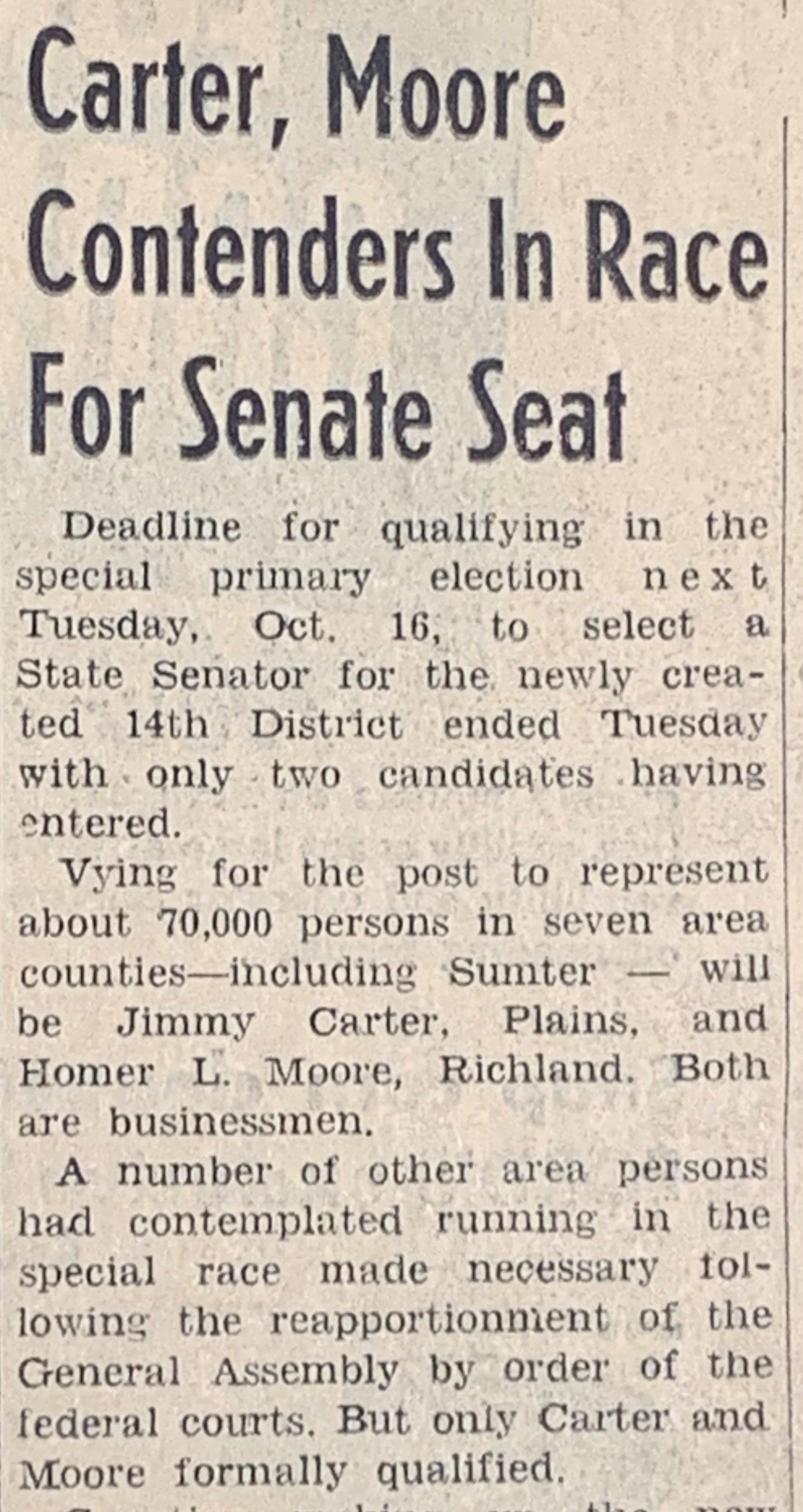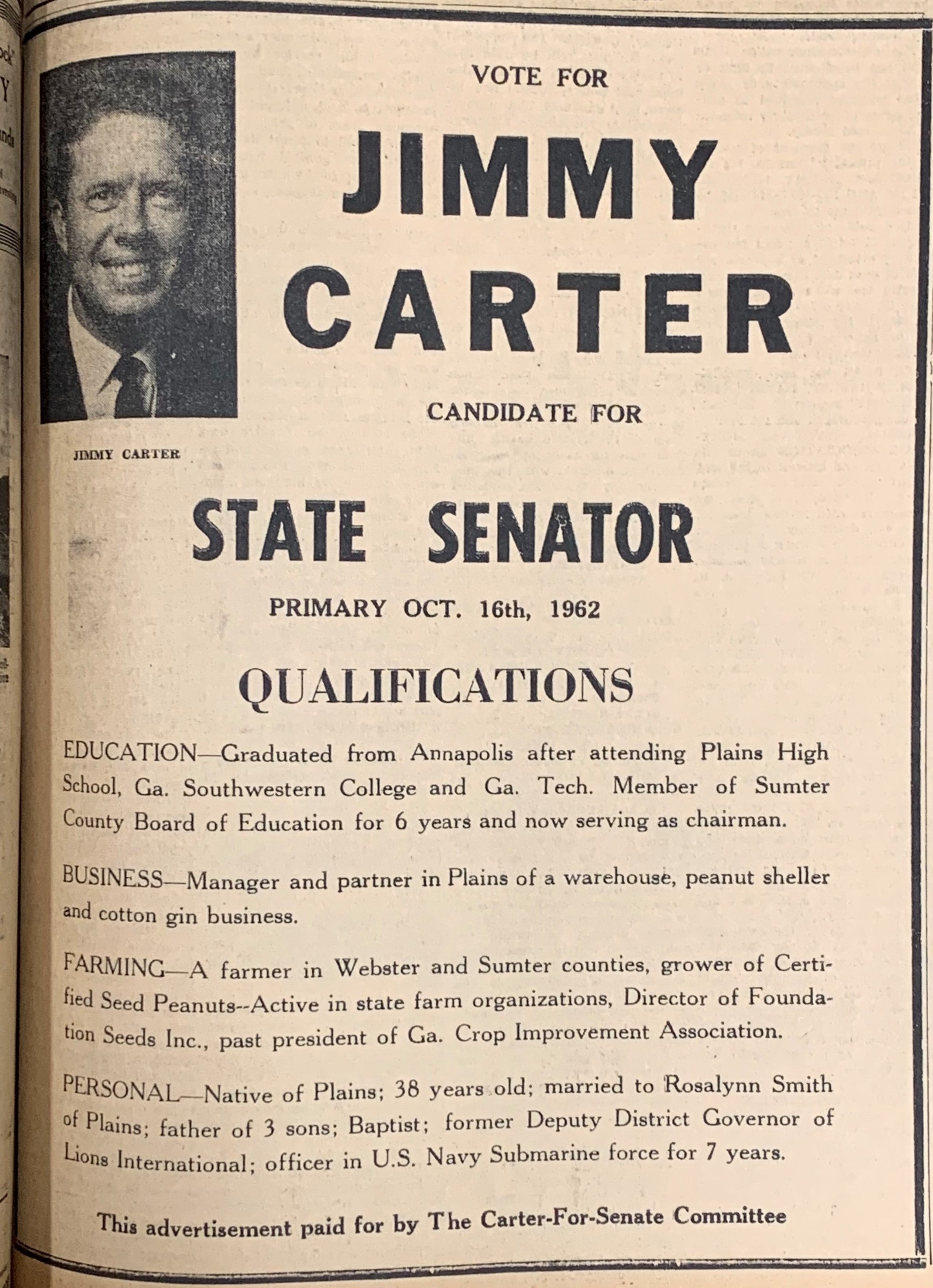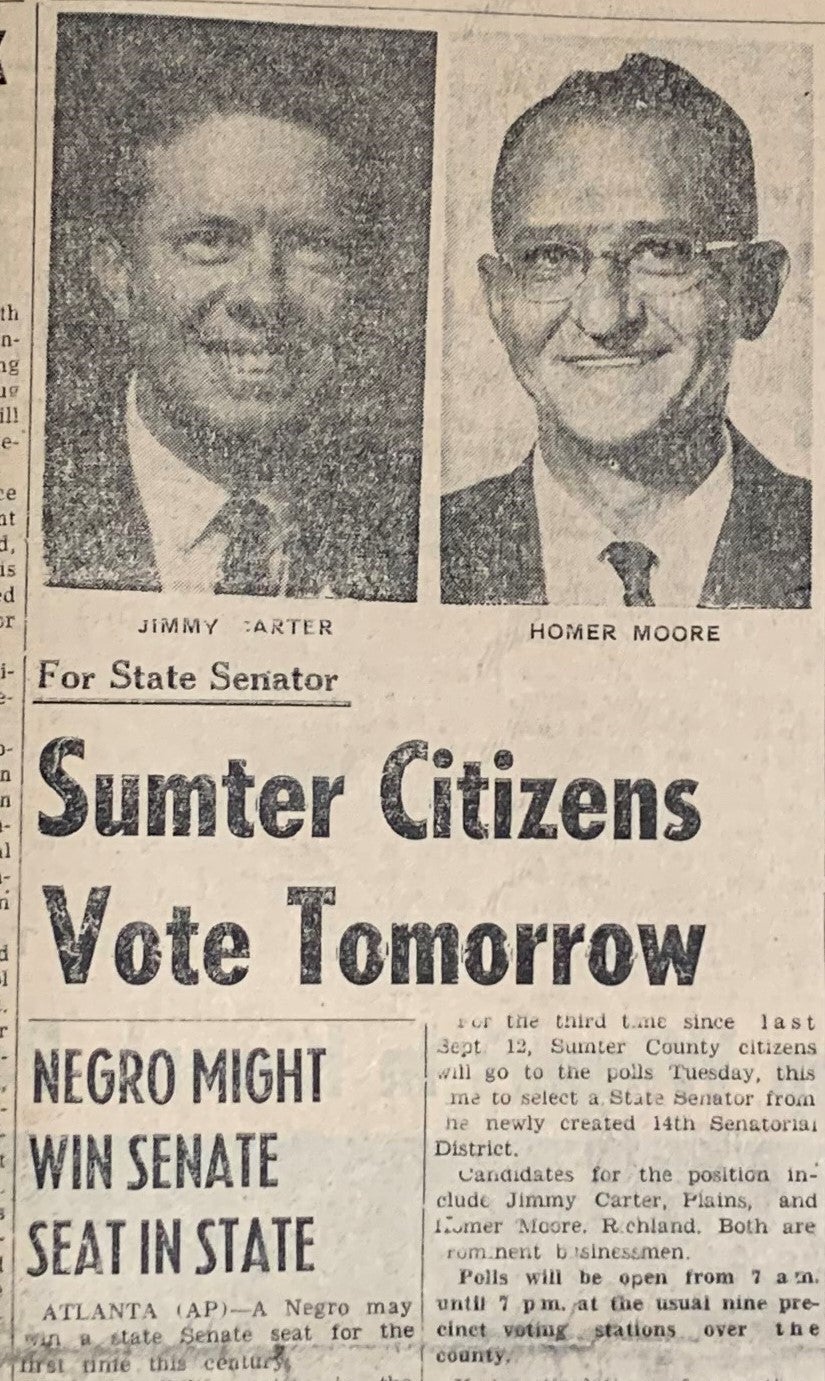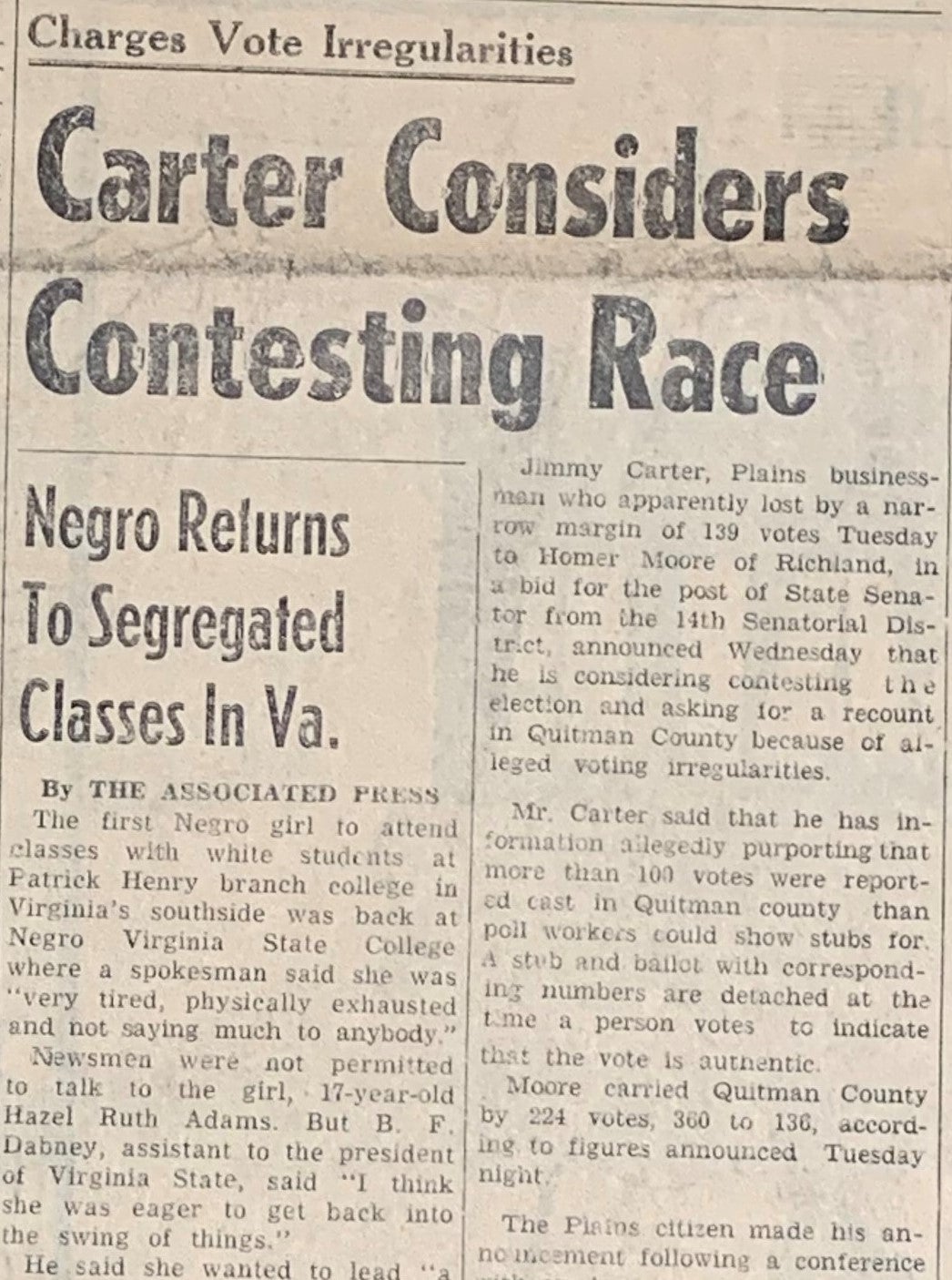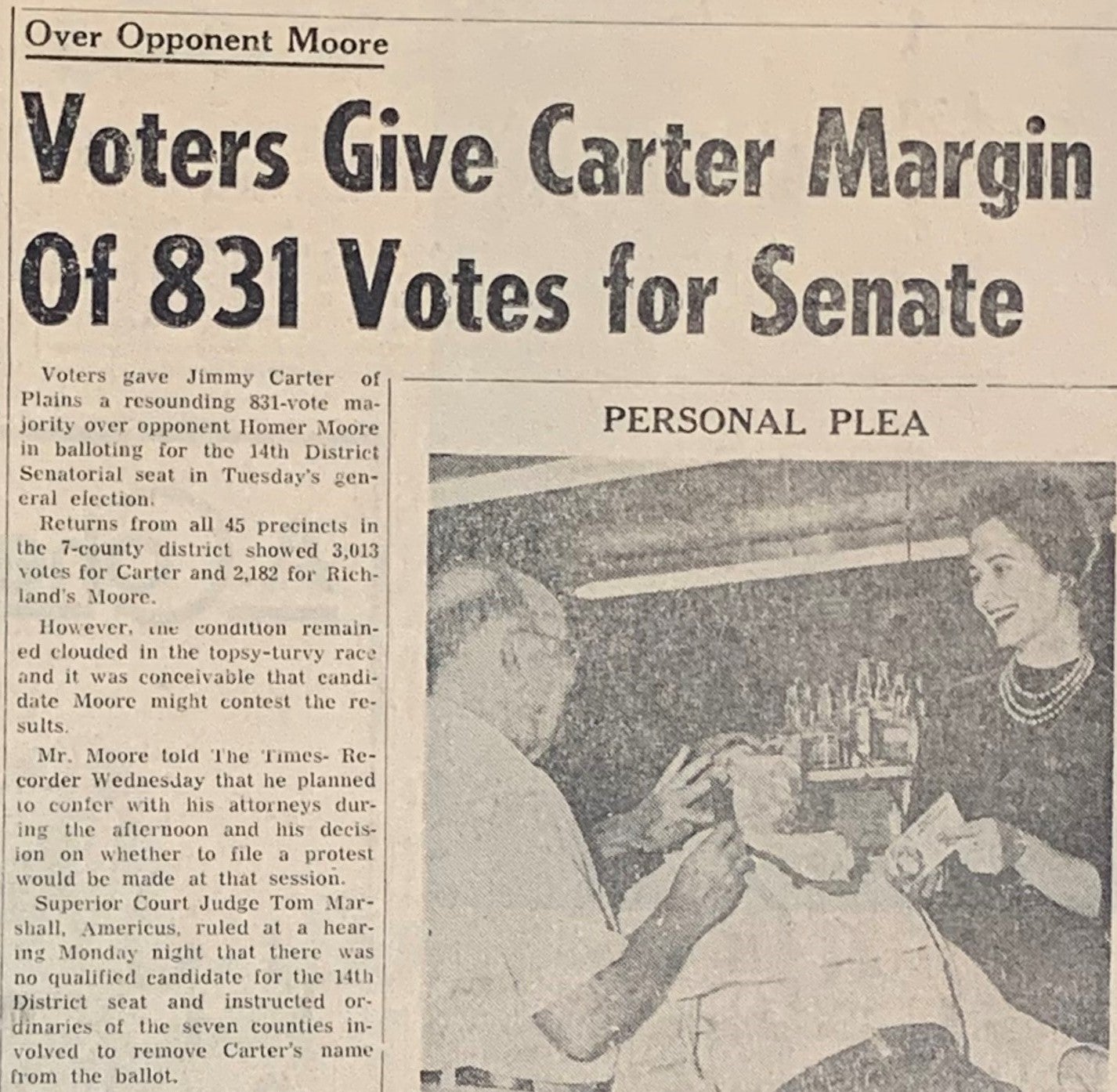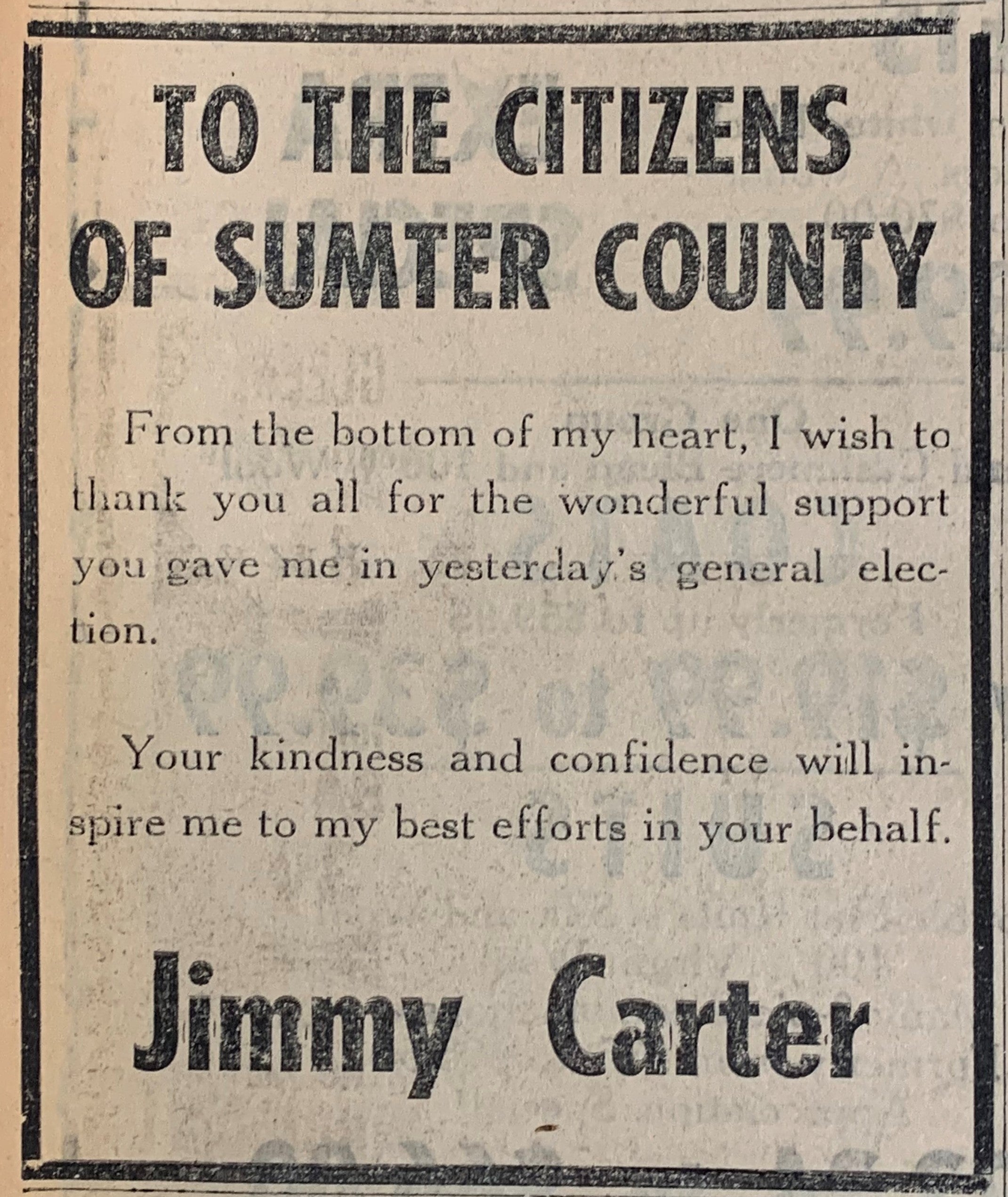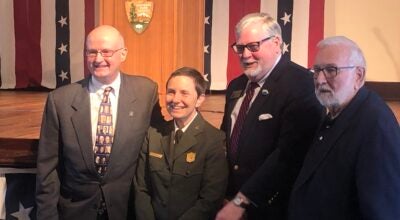A political “turning point”: Jimmy Carter and his 1962 GA. State Senate run
Published 8:14 am Tuesday, June 6, 2023
|
Getting your Trinity Audio player ready...
|
by D. Jason Berggren
Note: D. Jason Berggren is an associate professor of political science at Georgia Southwestern State University. As part of the Americus Times-Recorder’s historical coverage of Jimmy Carter, this article and the accompanying images are dedicated to honor his political progression and his public service in the Georgia State Senate. Here are some highlights from his 1962 run for the Georgia Senate and why he decided to become a state legislator.
It started here in Sumter County. Jimmy Carter’s first political office was the county board of education. He was a board member for more than seven years. He served from December 1955 to January 1963. Beginning in July 1960, he was the chairman of the school board. It was from this position that he set his sights on the next political level. In October 1962, on his birthday, Carter decided to run for the Georgia State Senate. It was a political “turning point” for him. But it was also a political turning point for the state and the country.
The 1962 senate campaign was Carter’s first for elective office. It was a brief, “whirlwind” campaign, lasting just over a month. He relied on radio and local print media to build support. Two years later in November 1964, he won re-election. Full of determination, by 1966, he looked to do something else. However, this four-year period in the Georgia General Assembly gave Carter some legislative experience and it shaped his views of the legislative process and legislative behavior.
Carter connected religion and politics at this time, too. Politics, he believed, could be a form of Christian ministry. When a visiting minister who was in town for revival services at the Plains Baptist Church questioned him on whether one could do good and stay clean in politics, Carter was certain that it was possible. He emphatically responded, “How would you like to be the pastor of a church with 80,000 members?” According to Carter, the evangelist conceded the point that one could “stay honest” and “minister to the needs of the 80,000 citizens of the 14th senate district.”
On October 1, 1962, Carter announced his candidacy for the Democratic primary. It was his thirty-eighth birthday. In his book, Turning Point, he described that he got up early that Monday morning, dressed in his Sunday attire, and drove to Americus to have his candidate announcement published in the local paper. He confessed that it was a unilateral decision and his wife Rosalynn only found out what he was up to that day.
Carter’s announcement in the Americus Times-Recorder introduced him as a businessman, a Plains High School graduate, an Annapolis graduate, and a Navy veteran. In terms of politics, it noted that he was “president of the Sumter County School Board.”
A week later, Carter and his opponent in the primary, Homer Moore of Stewart County, qualified for office on October 8. Each met the eligibility requirements for office and paid their $500 qualification fee. Carter expressed his readiness to serve. “I believe that I am well-qualified through education and experience to serve as state senator.” With no other candidates qualifying, Democrat or Republican, the primary winner was assured of being elected.
On October 13, the Americus Times-Recorder endorsed Carter over Moore for the October 16 primary election. While the editor of the paper, James R. Blair, said that district voters were fortunate to have two high quality candidates, he concluded, “Jimmy Carter is the man of for the job.” Blair lauded Carter’s “educational background, business and agricultural experience and his past service to this community.” Furthermore, he praised Carter for “his courage of conviction” and his willingness to do “what he considered right” even when facing “strong opposition among his own people.” Carter “still retained their respect and friendship.” Blair additionally identified Carter as “the type of man who will work just as hard for the smallest as the largest [county] and will be a fair and earnest representative for all.” These early assessments aged well.
But why did Carter run for the Georgia Senate? Why did he run that year? In his writings, Carter mentioned several reasons. I’ll identify a few of them here. One reason was opportunity. Carter explained in Turning Point that in 1962, under pressure from the federal courts, each of the state’s 54 senate districts were redrawn and apportioned more equally in terms of population by the General Assembly and election outcomes would be decided exclusively by winning a majority of the popular vote. Carter said this made a senate run “attractive” to political newcomers like himself.
Sumter County was put in the Fourteenth District with six other counties: Chattahoochee, Quitman, Randolph, Stewart, Terrell, and Webster. It had a population at the time of about 75,000. Previously, Sumter was in the Thirteenth District with Macon and Schley counties.
Because Sumter was the largest county in the new district, Carter believed this gave him an advantage in a contest with an opponent from a smaller county at the opposite end of the district.
Carter also liked the idea that Georgia’s state legislature was a part-time body typically limited to a “number of working days each year during January, February, and March.” Such a short annual session, he reasoned, would have minimal impact on his business because it occurred during a “least demanding” period of the year.
There was a personal reason as well. Carter wanted to emulate his father and his example of community service. At the time of his death in July 1953, Earl Carter was a member of the Sumter County Board of Education and a member of the Georgia House of Representatives. Carter ended his naval career that year and returned home to Plains with Rosalynn and his three sons, Jack, Chip, and Jeff. Amy was not born until 1967.
Carter greatly admired his father and after he came home, he soon followed in his father’s political footsteps. In 1955, he was selected by a grand jury to fill a vacancy on the county school board. It was the very seat his father once held for many years. On the board, Carter also took up the school consolidation issue his father once led. In 1962, he believed it was his time to follow his father to the state capitol in Atlanta.
Carter revealed another key reason why he ran for the senate in a graduation speech he gave (likely in 1964) at Union High School in Leslie. It had to do with his first political defeat in July 1961 when he was the chairman of the Sumter County school board. At the time, he led the pro-consolidation campaign in the countywide referendum. While it passed in Americus and in most of the county, it was soundly rejected in Plains and Leslie. He stated in his book Why Not The Best that the 1961 referendum campaign was his “first real venture into election politics and campaigning” and the narrow loss was “a stinging disappointment.”
Before the graduation audience, he offered this explanation toward the beginning of his remarks. “You may not realize it, but the last speech I made here on your campus was indirectly responsible for my being a senator now. When you were freshmen or sophomores, I went to all the communities in the county, as chairman of the Sumter County school board, to explain a survey team recommendation that our county schools be consolidated. The reception to my speech was such that I decided I would rather be in the Senate than to stay on the school board in Sumter County.”
It was also in that commencement speech that Senator Carter told his “why not the best” story. This would inform a major theme of his 1976 presidential campaign, inspire a catchy campaign song, and become the title of his campaign autobiography. This is what he said.
“About the time you were starting to school, I was serving on a submarine as a young naval officer, and along with hundreds of others, I was trying to obtain assignment to the crew of one of the two new atomic submarines. I later received the assignment, but the final examination was a personal interview with Captain Hyman Rickover [later admiral], the man who developed atomic power in ships. He was an odd person, intense, overbearing, and brilliant. Toward the end of the questions, he asked how well I did at the Naval Academy at Annapolis. I described my scholastic record to him, and then he asked, ‘Did you do your best?’ I had to answer that I had not. Then he said, ‘Why not?’ I have never been able to answer this question – nor have I ever been able to forget it.”
To win, Carter overcame election irregularities and fraud in the initial vote through the courts. It was discovered that the vote was in Georgetown, Quitman County was tainted by illegal votes. He said, “Many of the ‘voters’ were dead, in prison, or had long ago moved away and voted in other communities.” After Carter proved his case, a new election was ordered and he prevailed in the November 6 revote. In Turning Point, Carter discussed this episode and how it was resolved in detail.
In its November 7 edition, the Americus Times-Recorder reported that Carter had defeated Moore by 831 votes for a 58 – 42 percent victory. In terms of counties, Carter won four and Moore won three. The Nov. 7 posted total showed Carter carrying Sumter, Chattahoochee, Quitman, and Randolph. Carter won Sumter with nearly 80 percent of the vote and he swept all nine precincts (Americus, Andersonville, Chambliss, Concord, Huntington, Leslie, Plains, Sumter City, and Thompson). According to the Americus paper, the Sumter vote was the difference in the race as Moore held a small lead in the combined vote of the other six counties. At first a political newcomer and then a political outsider, Carter took on corrupt politics and won convincingly.
In an ad placed in the paper, Carter thanked the people of Sumter County for their trust and he pledged to do his best. Sumter was his home and it was Sumter that brought him to victory.
In January 1963, Carter was sworn into office by Lt. Governor Peter Zack Geer. The new senator was given committee assignments on agriculture, education, highways, and defense and veterans affairs. Arguably, during his senatorial career, his most notable achievement was in education. It was a priority of his to upgrade Georgia Southwestern College from a two-year school to a four-year school and he succeeded.
In March 1966, Carter was ready to make his next political move and advance to another political office. The ambitious forty-one-year-old first considered a run for the U.S. Congress. He wanted to challenge the incumbent Republican, Howard “Bo” Callaway, who won the Third Congressional District seat in 1964. He declared, “I am confident I can win this race.” Ultimately, however, Carter decided in June 1966 to run for governor.
More historical coverage of President Carter, including articles and images, may be found online at http://www.americustimesrecorder.com/category/jimmy-carter/.


